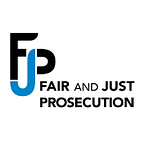FJP On the Road: The Portuguese Health Model
Over the summer, Fair and Just Prosecution and over 20 prosecutor leaders from across the US traveled through Germany and Portugal to explore international models and innovative strategies to reduce incarceration, prevent crime, and strengthen communities. For more on the trip, check out our opening and closing dispatches from Germany.
Two decades ago, Portugal was facing a public health drug overdose crisis, much like the U.S. is grappling with now. Nearly 1% of their population was using injection drugs, and as a result of needle sharing, Portugal had the highest rate of drug-related AIDS diagnoses in the European Union. Tragically, drug overdose deaths were skyrocketing and becoming far too commonplace. Today, HIV infections and incarceration for drug-related offenses have plummeted in Portugal, and the country now has the lowest rate of drug-induced deaths in Western Europe.
What changed? And how can the U.S. learn from a different model that led to a paradigm shift in responding to drug use?
When Portugal became the first country to decriminalize drug use, the government didn’t just change their law, they also dramatically increased treatment and harm reduction services — which meet people where they are and reduce the stigmas and harms associated with drug use. When the criminal justice system absented itself from attending to concerns around drug use, public health stepped in and filled the gap.
Over the past week, FJP and elected prosecutors met with experts and visited several public health and harm reduction services during our time in Portugal to get a better understanding of how the US can shift its approach to substance use. This invaluable site learning included visits to:
- IN-Mouraria, a drop-in service center, that provides basic healthcare, rapid testing, supplies and a wide range of social services to all people who use drugs. They also advocate for the rights of people who use drugs by engaging in the political process and reducing stigma surrounding drug use.
- An integrated treatment center that is part of a network completed in the early 2000s to ensure everyone has access to high quality inpatient treatment close to home. The center provides take-home options for medication-assisted treatment (MAT), such as methadone. Low barrier access such as this ensures that treatment for substance use disorder does not unnecessarily disrupt a patient’s daily routine.
- CRESCER, a street outreach program, that literally meets people where they are and goes to high drug consumption areas to provide people with kits containing medical supplies such as syringes and bandages, pamphlets with information on broader support services and, when necessary, food and water.
- A recently opened mobile overdose prevention site, where people can consume drugs under medical supervision to reduce the risk of overdose death and be connected to treatment and other services. Overdose prevention sites — which have been proven to be effective in saving lives — exist in dozens of countries worldwide and are now in Portugal because of the efforts of IN-Mouraria and other advocacy groups who understand how critical they are in promoting harm reduction approaches.
- A mobile methadone van, one of several throughout the city, that makes multiple stops a day and provides access (after basic medical tests conducted on site) to anyone who might need methadone treatment. We discussed the goals of the program — to provide low-barrier medical care and eliminate tuberculosis; their partnerships with community members, police and prison officials; and how harm reduction starts with meeting the needs of individuals on their own terms.
A common theme we saw is the recognition by these service providers that drug use is often inextricably linked to other challenges and issues — such as underlying trauma or lack of employment and housing — that are equally critical to address. Another important theme we heard from officials at the Ministry of Health’s division on addictive behaviors (SICAD), and the European Monitoring Center for Drugs and Drug Addiction (EMCDDA) was that decriminalization helped policy makers and the community at large recognize substance use disorder as a health issue, like heart disease or diabetes. This significant shift in perspective has been integral to increasing the wide-ranging supports needed to help people seek, and have success with, treatment.
We were also inspired to meet with UNITE, a network of elected parliamentarians committed to ending HIV/AIDS. They shared lessons from the implementation of different aspects of the Portuguese model — or other drug policy reforms — in countries around the world that are grappling with the same questions and challenges as the US.
This incredibly full week has been invaluable. We had the opportunity to hear firsthand from those who have advocated for and implemented drug decriminalization — including government officials, police, prosecutors, treatment providers and community harm reduction service providers and organizers.
It’s clear that while Portugal’s model isn’t a silver bullet to address overdose death, there is much to be learned from a country that has significantly reduced their overdose death rate and overall drug use in such a short period of time. By enacting a wholesale philosophical shift away from criminalizing and stigmatizing drug use, Portugal has saved lives. It’s that simple — and as a result it is incumbent on US leaders to be willing to open their minds to a new starting point that has a proven track record.
We are so grateful to all who welcomed us, imparted their wealth of knowledge and offered frank insights to us during our time in Lisbon. And we are proud to have been joined by so many reform-minded elected prosecutors from around the U.S. who are poised to bring back this learning to their communities — and to put these new ideas into action.
